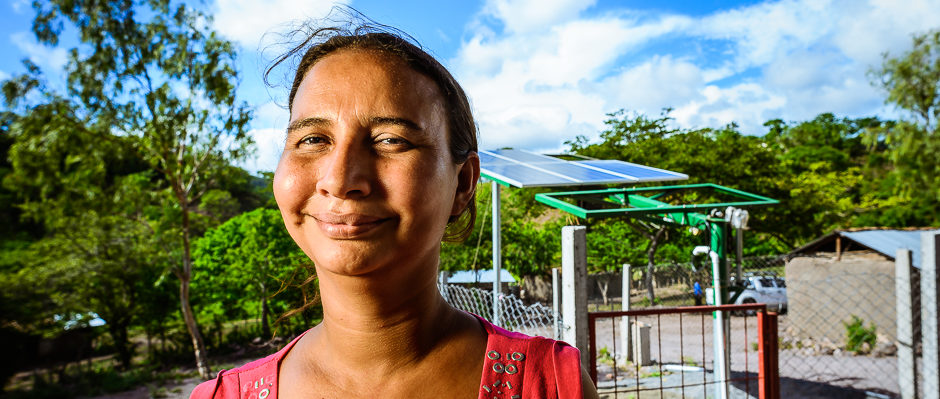From August – September 2019, more than 150 journalists from different countries of Latin America and the Caribbean participated in the ‘Renewable Energy Course for Journalists in Latin America and the Caribbean’ implemented by Hivos and the Latin American Energy Organization (OLADE). The course included subjects intended to increase the knowledge of the use of renewable energies in the different regions of Latin America. The objective of the program was to provide journalists in the region with the required tools and skills to understand the relationship between access to renewable energy and society, thus motivating sustainable rural development of countries while respecting the culture and ways of life of indigenous peoples and territories.
The training was targeted to independent and media journalists, communicators and infomediaries with an interest in covering current issues in the energy sector.
The course was delivered online from August to September and will be held face to face in mid-October. Participants with the highest academic scores will be awarded full scholarships to travel to Punta Cana, Dominican Republic where the second part of the course will take place.
Why this course?
The course provides journalists and communicators from across the region the knowledge to share best practices and lessons learned in the development of renewable energies in the region. The course seeks to raise awareness and sensitize journalists, communicators and media owners in Latin America and the Caribbean on energy affairs and develop a knowledge framework that allows them to properly convey messages such as access, renewable energy and the effect of climate change in the region’s energy sector, social conflict in the territories, among others.
The set-up
Twelve experts were in charge of the sessions that took place through the CapevLAC platform. These sessions were divided into six modules and 16 online sessions and were complemented by readings, interactions, discussion forums, questionnaires and research papers.
The modules included, Introduction to Energy, Energy Context in Latin America, Climate Change and Renewable Energies, Energy and Access, Gender and Energy, The Role of Journalists and their link to information.
Lecturers’ responses
Lecturers have a long career and are well established in the field. For them, the course has also been a required and great opportunity to expand their knowledge. Leonardo Beltrán, member of the board of directors of Sustainable Energy for All, agrees that “it is a great initiative by the OLADE and Hivos, because it brings basic concepts and tools of analysis to journalists in a very accessible and interactive way. In this way, they can objectively report the benefits and challenges faced by our region. The communication sector can be crucial in spreading the benefits that the energy sector provides for the development of Latin America and the Caribbean. With the dissemination of the impulse to access energy and sustainable and inclusive development of the region, journalists can ensure that we are all part and can face the greatest challenge that humanity is facing, climate change, and also sensitize the public to promote coordinated action and be part of the solution. ”
On the other hand, Leticia Ortega, Master in Gender, Society and Policies of the Regional Training Program on Gender and Public Policies (PRIGEPP) of FLACSO-Argentina, believes that “the energy needs of women and men are different, because their genre roles are different. When making energy policy it is necessary to meet the needs of everyone, avoiding being left with androcentric approaches only when analyzing our realities. When news are reported taking into account the specific needs of women, it is impossible to make invisible their valuable contribution in the construction of society. This is achieved by using inclusive and non-sexist language, by reporting with gender-disaggregated data, by breaking stereotypes and by reporting with social responsibility. ”
Participants’ responses
According to the participants, the course and its content exceeded their expectations. Blanca Denise Ricaurte, institutional communicator of the National Electricity Operator CENACE / Ecuador explained that “The Executive Program in Sustainable and Inclusive Energy for Journalists of Latin America and the Caribbean was very useful for me as a communicator belonging to an institution of the Ecuadorian electricity sector. The course was extensive in terms of basic technical aspects, essential for journalists covering news on the energy sector, and in terms of communication itself which is always contemplated as a service for the community, highlighting the importance of the role and ethics of journalists. The knowledge acquired will be useful in my professional career, both now in the electricity sector, and later, in any communication area where the energy field will continue to stand out for its national and regional relevance”.
Another participant, Uveli Alemán, from El Mundo newspaper in El Salvador, explains that “this type of training generally only includes the technical aspects of the energy sector; but, to my surprise, this course included areas not considered by traditional sources, such as gender and the impact of electricity on women’s work. It has definitely opened my mind to new issues and to consider topics which are not currently covered. ”
Finally, the Guatemalan journalist, Diana Pastor said that, “the course was very interesting because it addressed topics related to renewable energy in depth. The participation of different lecturers made the course invaluable. Shortly, the magazine in which I am an editor will address topics of renewable energy, so for me the course was an important introduction on how to address the topic in the different articles that will be presented in the magazine. ”




